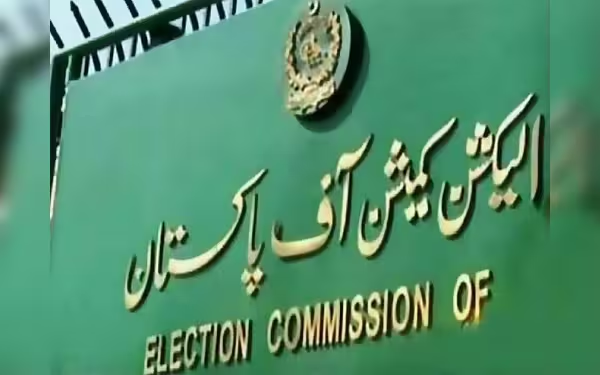Saturday, November 16, 2024 03:16 PM
Supreme Court's Ruling Challenges ECP on Reserved Seats
- Supreme Court rebukes ECP for delayed response.
- ECP must adhere to court's original directives.
- Ruling emphasizes transparency in electoral processes.
 Image Credits: tribune.com.pk
Image Credits: tribune.com.pkSupreme Court's ruling challenges ECP's handling of reserved seats, emphasizing transparency and accountability in Pakistan's electoral process.
The political landscape in Pakistan has recently been shaken by a significant ruling from the Supreme Court regarding the Election Commission of Pakistan (ECP) and its handling of reserved seats. Reserved seats are special positions allocated to ensure representation for various groups in the legislative assemblies. This ruling has sparked a heated debate about the responsibilities and actions of the ECP, which is tasked with overseeing fair elections in the country.
On September 14, the Supreme Court issued a stern rebuke to the ECP, criticizing its "misconceived" request for clarification on a previous verdict concerning reserved seats. The court's decision emphasized the need for the ECP to adhere to its original directives without delay. This ruling came after the ECP sought to clarify its position regarding documents submitted by the Pakistan Tehreek-e-Insaf (PTI) party, which the court noted it had not formally addressed.
The Supreme Court's order for immediate implementation of its original directions indicates a strong stance on the matter. It highlights the court's expectation that the ECP must act promptly and transparently in its electoral duties. The lack of notice to the ECP regarding PTI's documents raises questions about the procedural integrity of the electoral process, which is crucial for maintaining public trust in democratic institutions.
This situation underscores the ongoing challenges faced by the ECP in navigating the complex political environment of Pakistan. The commission's role is not only to conduct elections but also to ensure that all political parties are treated fairly and equitably. The Supreme Court's intervention serves as a reminder that the ECP must operate within the framework of the law and uphold the principles of democracy.
As the political climate continues to evolve, it is essential for the ECP to reflect on this ruling and take proactive steps to enhance its operations. Ensuring transparency and accountability will be vital in restoring public confidence in the electoral process. The implications of this ruling extend beyond the immediate case, as they set a precedent for how electoral bodies should interact with the judiciary and political parties in the future.
The Supreme Court's decision not only challenges the ECP's recent actions but also serves as a pivotal moment for the future of electoral governance in Pakistan. It is a call to action for the ECP to refine its processes and ensure that it fulfills its mandate effectively. As citizens, it is our responsibility to stay informed and engaged in these developments, as they directly impact the democratic fabric of our nation.













